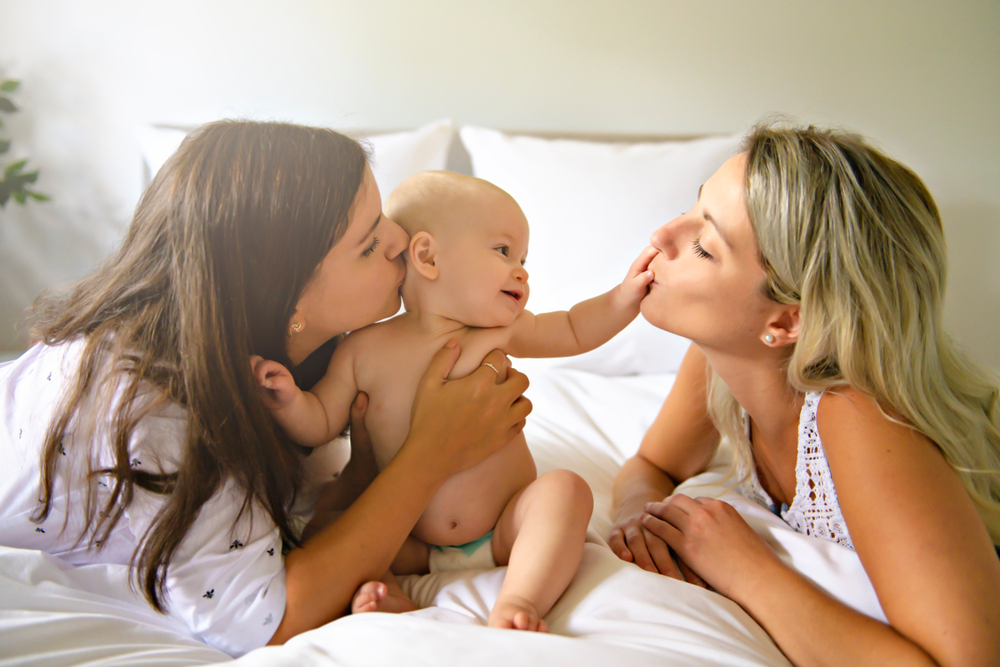 Whether we’re for or against it — or even aware of it — new legislation exists for Florida public schools. On March 28, 2022, Florida Governor Ron DeSantis signed the Parental Rights in Education law, which will take effect on July 1, 2022. More control over what and how our children learn sounds appealing, but when I heard opponents are calling it the “Don’t Say Gay” law, I took a deeper look.
Whether we’re for or against it — or even aware of it — new legislation exists for Florida public schools. On March 28, 2022, Florida Governor Ron DeSantis signed the Parental Rights in Education law, which will take effect on July 1, 2022. More control over what and how our children learn sounds appealing, but when I heard opponents are calling it the “Don’t Say Gay” law, I took a deeper look.
Full disclosure: I come from a family where the majority of us identify with at least one of the letters in LGBTQ+. I’ve danced with my brother at The Metro on Christmas Eve. My kids marched in their first Pride parade when they were ages 2 and 4. At one point in our lives, Mother’s Day called for as many greeting cards as I have fingers on one hand. Suffice it to say, we’re a lot to keep straight.
Straight Talk
To be fair, the law does not explicitly ban using the word “gay.” The exact language sparking controversy says it’s an act “prohibiting classroom discussion about sexual orientation or gender identity in certain grade levels or in a specified manner.” It goes on to state that “Classroom instruction by school personnel or third parties on sexual orientation or gender identity may not occur in kindergarten through grade 3 or in a manner that is not age-appropriate or developmentally appropriate for students in accordance with state standards.”
I understand the desire to be involved in what and how my children learn about sensitive topics. My partner and I would rather screen educational videos from Amaze.org to teach our kids sex-ed at home versus having them learn from a random classmate on the playground. So, what’s the problem?
Just as many fear what lies on the other side of our crumbling structures around sexuality and gender, I fear the way this law might play out when my kids return to school next fall. The law doesn’t go into detail about what is and isn’t allowed to be said. What it does say is that if a parent believes a discussion or instruction their child hears at school violates the law, they have the right to sue. When the penalty for violation is financial, most schools can’t afford to test the waters on what is and isn’t allowed.
Questioning Authority
As a queer-identified parent, this leaves me with some serious questions. If this law had been in effect when I was the volunteer gardening teacher for my son’s kindergarten class, what would I have been allowed to say to the student who asked why the little boy with the watering can was wearing a red dress? When my kids’ teachers asked about their weekends, would my kids have been allowed to say their uncles had a wedding at Treaty Oak? After my 4-year-old pushed my 2-year-old in his stroller in the Pride parade with our church, would I have needed to caution him not to talk about it at VPK?
I wonder what my kids will experience when they go back to school this August. Will my moms be allowed to introduce themselves as my kids’ grandmothers when they pick them up at early release? Will my 8-year-old be allowed to keep wearing the equals sign pin he bought from the National Center for Civil and Human Rights museum last year?
Accepting Responsibility
I’m asking parents to take a hard look at our children’s education, an issue that should bring us together, not apart. This isn’t the time to change the subject to literacy rates and pedophilia, as some media and political outlets have done. Those are real problems separate from this topic. Inclusive education is its own issue, and it applies to skin color, country of origin, language spoken, socioeconomic class, neurodiversity, sexual orientation, and gender identity.
Wherever we stand on issues of sexuality and gender, individuals with unique identities and presentations exist, often from a young age. What we believe and what we legislate, can’t change the fact that some little boys wear red dresses to kindergarten. No matter how things shake out in the classroom this fall, our responsibility as parents is clear. I hope you’ll join me in teaching acceptance and inclusivity at home, and advocate however you can to make learning welcoming and safe for all kids.
About the Author
Melissa Gopp-Warner is a creative nonfiction writer whose work has appeared in Jacksonville Mom, the JaxbyJax Literary Arts Festival, Uncomfortable Revolution, The Writer, and Yoga Journal magazine, among others. In her spare time, she grows food, raises humans, and adventures with her life partner. Find her on social media @melissagopp and online at her author website MelissaGopp.com.

















Thanks for this thoughtful piece on the new legislation. In a time of such deep socio-political division, messages of love and acceptance feel critical. Recognizing that all families, regardless of their makeup, want their children to experiencing safety and belonging feels like a wonderful place to start.
Thank you for reading, Jenny! Love and acceptance are so critical.